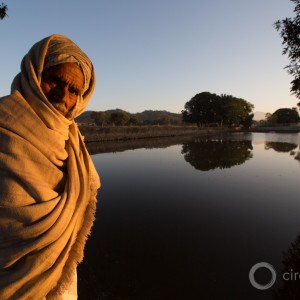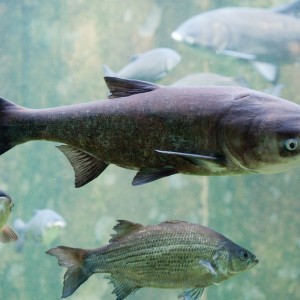The Stream, January 7: South Africa Drought Worsens Amid Heatwave
The Global Rundown |
Forecasters predict record temperatures will hit Johannesburg later this week, and a heatwave across South Africa is expected to place further stress on diminishing water supplies. Meanwhile, southern England could experience water restrictions later this year despite extensive winter flooding in the North, and Indonesia is preparing for floods from a possible La Nina weather event. Aid agencies built dozens of micro-dams in Yemen to alleviate water shortages, Malaysia declared a 3-month ban on bauxite mining to stem water pollution, and Canadian energy company TransCanada announced plans to sue the U.S. government for denying its proposed Keystone XL oil pipeline.
“La Nina (will) possibly occur in October. We’re preparing early in anticipation, just like last year when we made early preparations to face the drought.” –Amran Sulaiman, Indonesia’s agriculture minister, on steps the country is taking to prepare for potential floods later this year. It is installing water pumps, repairing irrigation systems, and accelerating rice planting. (Reuters)
By The Numbers |
38 degrees Celsius Temperature forecast for Johannesburg later this week, 1.5 degrees higher than the previous record. The heatwave is exacerbating drought conditions across South Africa, where dams are just 57 percent full. Bloomberg
3 months Duration, beginning January 15, of a ban on bauxite mining in Malaysia. Government officials said the temporary ban is meant to address concerns about water pollution. Bloomberg
50 dams Number built in the Rasd district of Yemen’s Abyan province to improve regional water supplies. The micro-dams are designed to capture rainwater for household use and farming. The National
Science, Studies, And Reports |
After a month of severe floods in northern England, southern regions could still face water shortages and water use restrictions this summer, according to scientists at the Centre for Ecology and Hydrology. Aquifers that provide much of southern England’s water were below average levels in November. Guardian
On The Radar |
TransCanada, the company behind the proposed Keystone XL oil pipeline, is pursuing two lawsuits against the administration of U.S. President Barack Obama after the president denied approval for the pipeline in November. The company has called the denial “arbitrary” and is asking for $US 15 billion to compensate it for the amount it spent trying to secure the pipeline’s approval. The pipeline was long opposed over concerns about its contribution to climate change, as well as potential water pollution. Guardian
A news correspondent for Circle of Blue based out of Hawaii. She writes The Stream, Circle of Blue’s daily digest of international water news trends. Her interests include food security, ecology and the Great Lakes.
Contact Codi Kozacek






Leave a Reply
Want to join the discussion?Feel free to contribute!